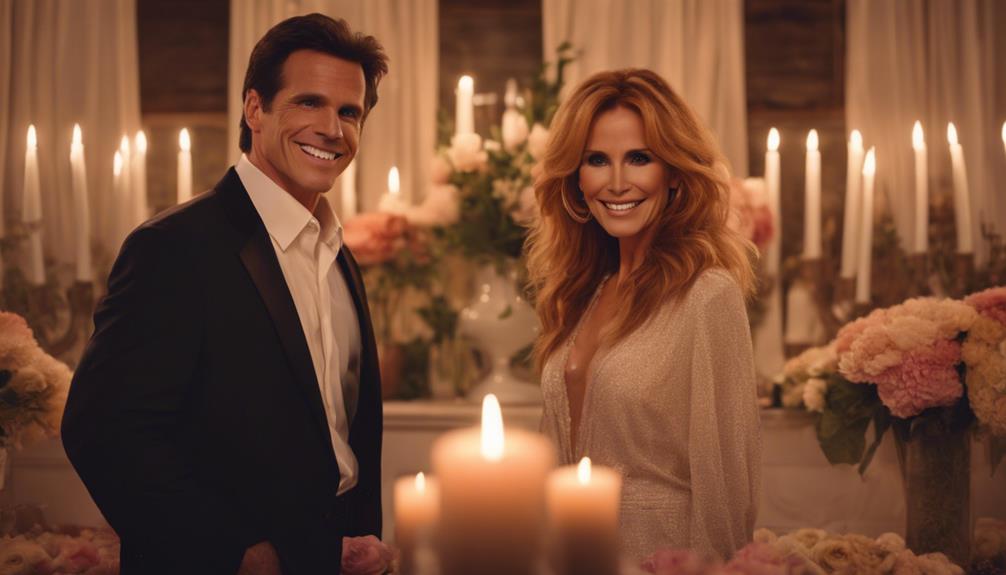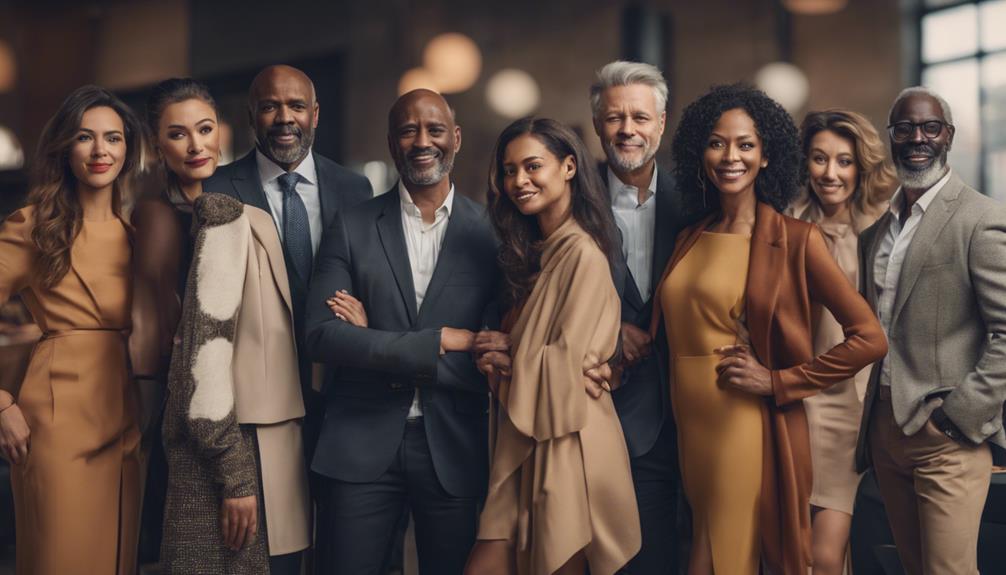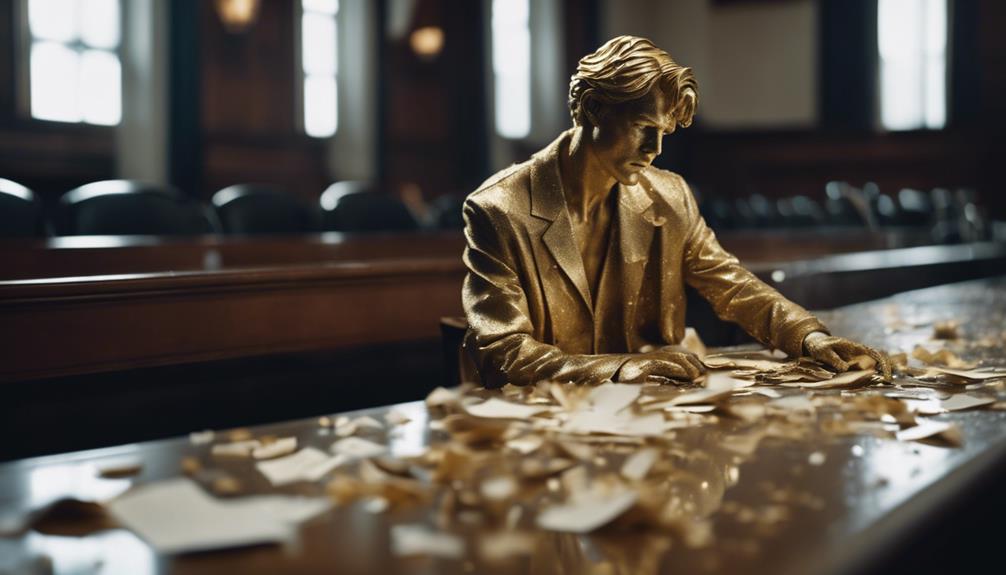Christian LeBlanc and Tracey Bregman, stars of The Young and the Restless, have had a long-standing on-screen romance as Michael and Lauren, but despite their convincing portrayal of a loving couple, they have never been married in real life. While they've had a successful on-screen marriage for 15 years, their personal lives have taken different paths. Christian LeBlanc is openly gay and has been married to his husband for 28 years, while Tracey Bregman was previously married to Ron Recht for 24 years. Their on-screen chemistry has been praised by fans, but they've maintained separate personal lives off-screen. Want to know more about their on-screen relationship and personal lives?
Key Takeaways
• Christian LeBlanc and Tracey Bregman are on-screen partners on The Young and the Restless, not married in real life.
• Christian LeBlanc is openly gay and has been married to his husband for 28 years.
• Tracey Bregman was married to Ron Recht from 1987 to 2011 and has two sons.
• Christian LeBlanc and Tracey Bregman's on-screen chemistry is well-received by fans, but they are not married in real life.
• The contrast between their on-screen and real-life relationships highlights the distinction between fiction and reality.
Christian LeBlanc's Personal Life
Christian LeBlanc's personal life has been a subject of curiosity among fans, particularly with regards to his on-screen marriage to Tracey Bregman. As an on-screen couple on the popular soap opera, The Young and the Restless, Christian and Tracey have been married since 2005, playing the roles of Michael and Lauren. Their on-screen chemistry has been well-received by fans of the show, and their characters have even had a son named Fenmore, born in December 2006.
Christian's portrayal of Michael has earned him critical acclaim, and his on-screen partnership with Tracey has been a highlight of the show. While their on-screen marriage has been a focal point of the show, fans have often wondered about Christian's personal life, particularly his relationship with Tracey. However, the actor has kept his personal life private, leaving fans to speculate about his relationships outside of the soap opera.
Tracey Bregman's Real-Life Marriage
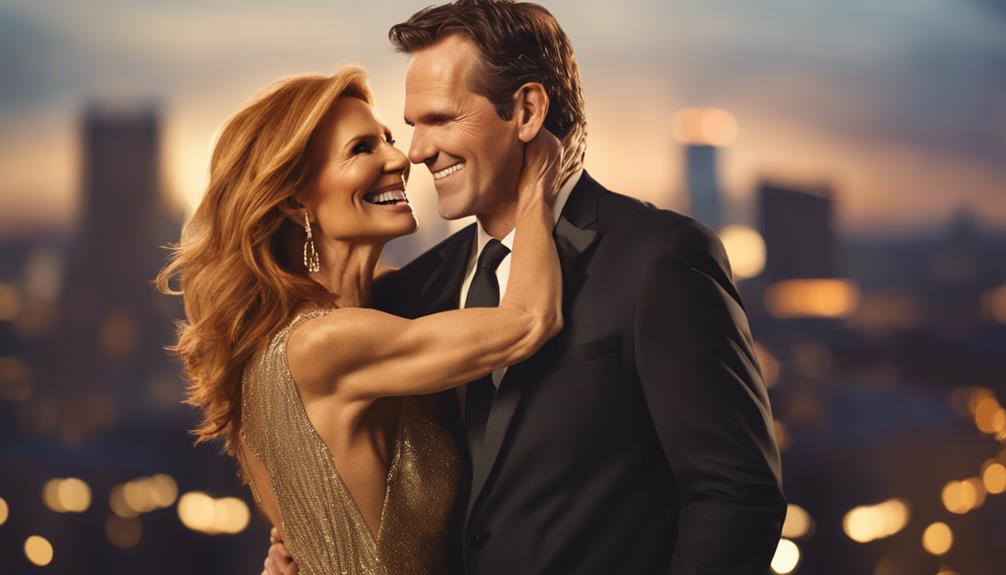
Tracey Bregman's real-life marriage to Ron Recht, a real estate developer, lasted nearly 24 years before they divorced in 2011. During their marriage, they welcomed two sons, Austin Recht in 1991 and Landon Recht in 1996. Both sons have pursued careers in real estate, acting, and music.
Here are three significant aspects of Tracey Bregman's post-divorce life:
- Focus on personal growth: After her divorce, Tracey Bregman has prioritized her personal growth and happiness, exploring new avenues for self-improvement.
- Romantic possibilities: She's also remained open to new romantic possibilities, embracing the idea of finding love again.
- Raising her sons: Throughout, she's continued to nurture her sons, Austin and Landon, as they navigate their own paths in life.
Through her experiences, Tracey Bregman has demonstrated resilience and a commitment to her own development, inspiring others with her story of growth and transformation.
On-Screen Romance Vs Reality
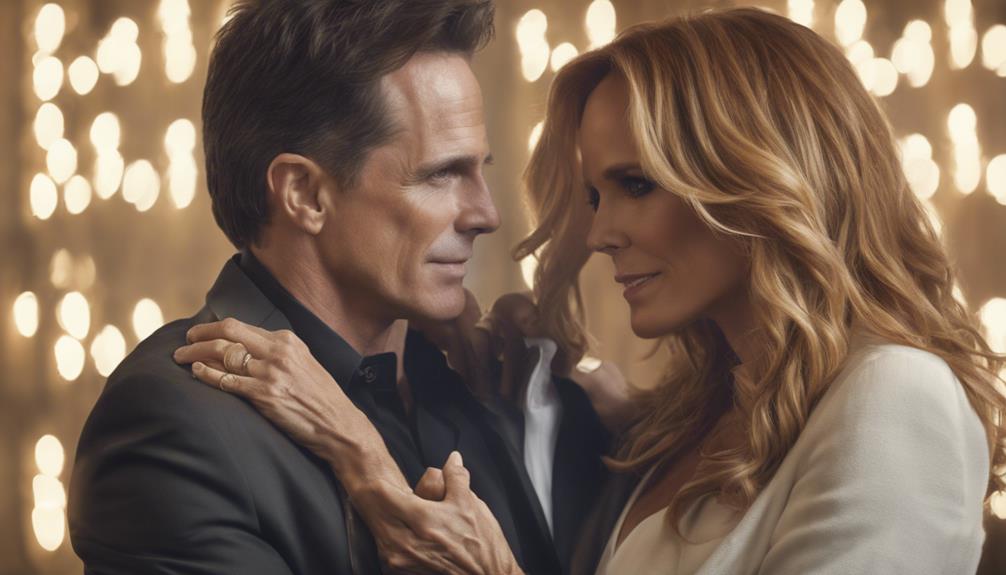
As fans of The Young and the Restless watched Michael and Lauren's on-screen romance blossom, the actors behind the characters, Christian LeBlanc and Tracey Bregman, were living separate personal lives that differed greatly from their fictional counterparts.
While their characters' relationship has been a central part of the show since 2005, in reality, Christian LeBlanc has been married to his husband for 28 years, having revealed his sexual orientation as gay. Meanwhile, Tracey Bregman was married to real estate developer Ron Recht from 1987 to 2011 and has two sons with him.
This stark contrast between their on-screen romance and real-life relationships highlights the distinct boundaries between fiction and reality.
Despite their on-screen chemistry, Christian LeBlanc and Tracey Bregman have maintained separate personal lives and relationships off-screen, showcasing their professionalism as actors.
Co-Stars' Off-Screen Relationships
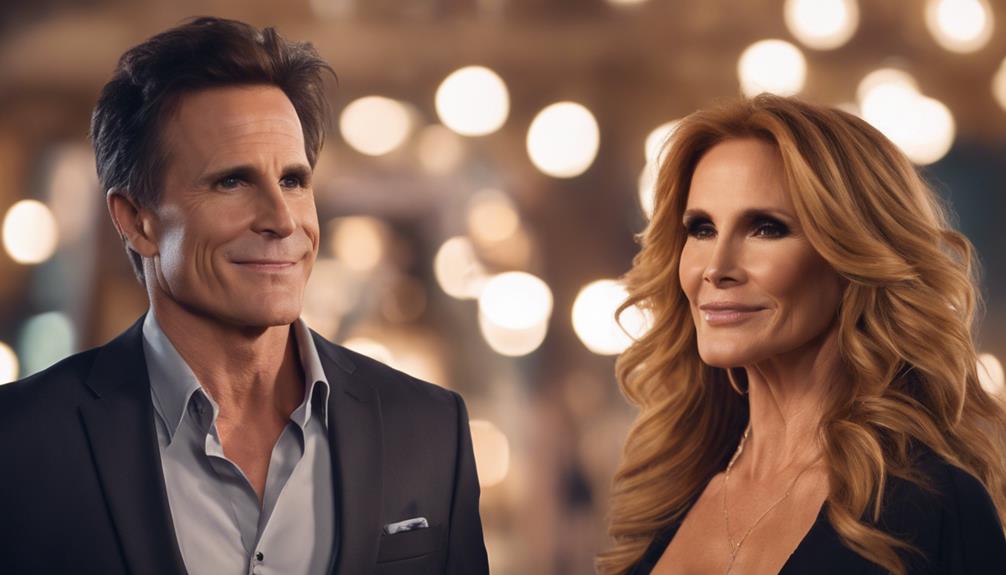
Behind the scenes of The Young and the Restless, fans wondered if the on-screen romance between Michael and Lauren would translate to real-life romance between their portrayers, Christian LeBlanc and Tracey Bregman. As it turns out, the answer is yes. The couple's on-screen chemistry as on-screen spouses, Lauren Fenmore and Michael, has been undeniable since 2005, and their real-life relationship has been just as strong.
Here are a few heartwarming facts about their relationship:
- Surprise Emmy Award: Christian LeBlanc surprised Tracey Bregman with a replacement Emmy Award after hers was destroyed in a fire, showcasing their off-screen bond.
- Long-term love: They've been married for over 15 years and have a son named Fenmore.
- On-screen magic: Their on-screen chemistry and relationship have been well-received by fans of the show.
Their real-life romance has been a beautiful extension of their on-screen relationship, and fans can't help but be invested in their love story.
The Young and the Restless Gossip
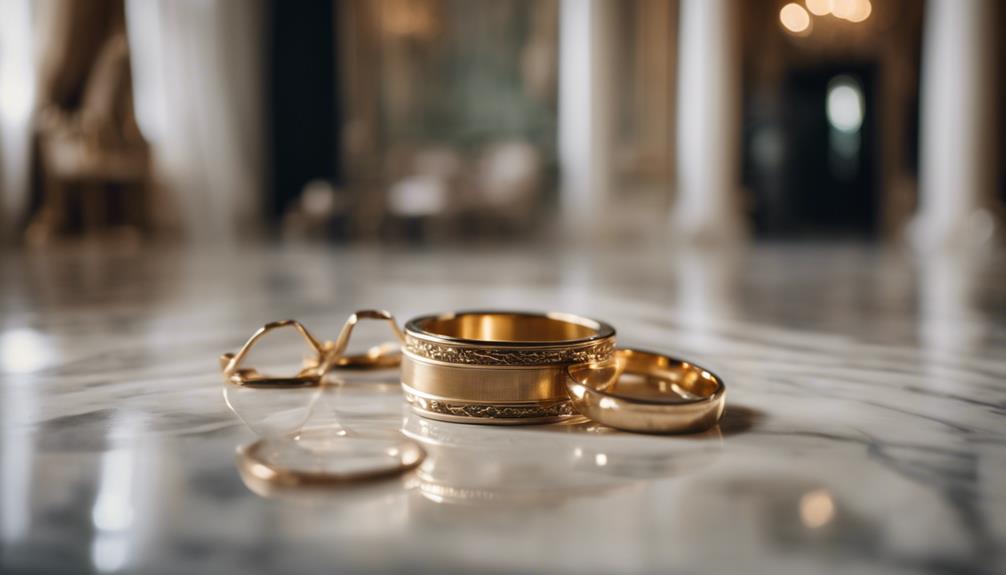
Christian LeBlanc and Tracey Bregman's on-screen marriage has been a central plot point in The Young and the Restless, with their characters' 15-year union sparking plenty of drama and romance along the way. As one of the longest-running soap operas, The Young and the Restless has been a hub for gossip and speculation among fans.
Christian LeBlanc and Tracey Bregman's on-screen chemistry has been a significant contributor to the show's success, with their characters, Michael and Lauren, getting married in December 2005. Their enduring on-screen relationship has been a focal point of the show, with fans invested in their characters' lives. The Young and the Restless gossip often revolves around the couple's on-screen marriage, with fans speculating about their characters' future together.
As Christian LeBlanc and Tracey Bregman continue to portray Michael and Lauren, fans of the show eagerly anticipate what's next for the beloved on-screen couple.
Frequently Asked Questions
Who Is Tracey Bregman Married to in Real Life?
Tracey Bregman, a renowned actress, isn't married in real life. After divorcing her husband, Ron Recht, in 2011, she's remained single, open to new romantic possibilities but not remarried.
Her focus has shifted to her sons, Austin and Landon, who've pursued careers in real estate, acting, and music.
Despite her busy schedule, Tracey Bregman has maintained a private personal life, keeping her romantic life under wraps.
Who Is Christian Leblanc Married To?
Christian LeBlanc has been married to his husband for 28 years, a long-lasting union that has stood the test of time. Unlike his on-screen marriage to Tracey Bregman on 'The Young and the Restless', his real-life marriage has been a private, enduring partnership.
While his on-screen character is married to Lauren Fenmore, played by Tracey Bregman, in reality, Christian LeBlanc has built a life with his husband, far removed from the soap opera drama.
Are Michael Baldwin and Lauren Fenmore Married in Real Life?
Although fans might assume Michael Baldwin and Lauren Fenmore's on-screen romance translates to real life, Christian LeBlanc and Tracey Bregman, the actors who play them, aren't married. In fact, Christian has been married to his husband for 28 years, and Tracey was previously married to Ron Recht.
Their on-screen chemistry is undeniable, but it's strictly a fictional relationship.
Are Tracey Bregman and Peter Bergman Related in Real Life?
Tracey Bregman and Peter Bergman, co-stars on 'The Young and the Restless', aren't related in real life. They share no familial connection, despite their characters' dramatic storylines on the show.
Tracey Bregman, whose real-life last name is indeed Bregman, plays Lauren Fenmore, while Peter Bergman portrays Jack Abbott. Their on-screen interactions are a result of their professional roles, not a reflection of any real-life familial ties.
Conclusion
As fate would have it, Christian LeBlanc and Tracey Bregman's on-screen romance as Michael Baldwin and Lauren Fenmore on The Young and the Restless mirrored their real-life friendship, but not a romantic partnership. While they've shared decades of chemistry on-screen, their personal lives took different paths.
Coincidentally, their characters' tumultuous relationship has been a focal point of the show, leaving fans wondering what could have been if their off-screen lives had intertwined like their on-screen counterparts.

